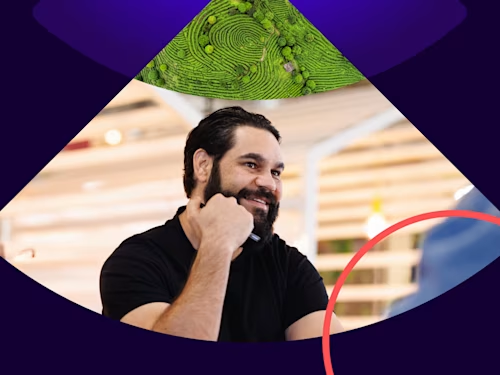
3 things every person can do to stay safe online
From scams targeting mums and dads, to major attacks on corporations, there are so many ways that hackers can impact individuals and businesses.

Whether you run a small business or head up a major company, there’s one thing you have in common with every other digital citizen out there today. It’s this: we’re all vulnerable to cyber attack. That’s right. No-one is completely safe from heinous hackers.
From malware infections to data breaches, scams to social engineering, cyber crime is predicted to cost $10.5 trillion annually by 2025. This is a staggering figure. And it’s why staying safe online continues to be one of the hottest topics on business leaders’ minds in 2023.
It’s all very well for CISOs to prioritise the modernisation of cyber defences, and for enterprises to invest in the latest cyber security tools and technologies. But what can the rest of us do, day to day, to keep ourselves and the people we work with (and for) safe? How can we best protect our own personal data, and that of our customers, from cyber criminals?
Here are three basic things to keep in mind. Like putting on your seatbelt or brushing your teeth, these need to become second nature to help keep you safe online.
1. Stay in the cyber loop
One of the best forms of protection against cyber attack is knowledge. By staying alert to potential threats and keeping your finger on the pulse of new scams and cyber crimes, you’ll be much more likely to spot a scam before you take fatal action.
You could subscribe to the Scamwatch email, which sends out regular updates of the latest scams to hit local shores. You could regularly check in with the Australian Cyber Security Centre for their latest advice, and sign up for their alerts as well. And, with cyber attacks hitting the headlines almost weekly, you could simply check the newsfeed on your phone.
If your business has an IT team or you outsource to a managed service provider, you could ask them to prepare a monthly digest to add to staff communications, too. This way, everyone stays in the cyber loop.
2. Level up your passwords
We all know how important it is to use hard-to-guess passwords, but many of us are still guilty of re-using the same easy-to-remember passwords across everything from banking to streaming services. This is a big no-no.
To keep your personal information safe, every site you visit should use a different password. Ideally, one that’s a complete mishmash of upper- and lower-case letters, numbers and symbols. Of course, no-one can possibly remember all these convoluted passwords. Which is why password managers exist. These are essentially ‘digital vaults’ that encrypt and store all your login information. Not sure which one to choose? Check out CNET’s handy review of some of the best password managers.
3. Seek out and switch on 2FA
Two-factor authentication (2FA, also known as multi-factor authentication) has come to the fore as a must-have addition to every cyber security toolkit. Instead of solely relying on a password (the first ‘factor’), it also requires a second form of identification – which could be a security token, your fingerprint, or even facial recognition.
Every digital service provider worth their salt should now give you the option to switch on 2FA. For example, with Docusign eSignature, you can confirm the identity of signers using multiple authentication options based on increasing levels of validation. You should avoid using services that don’t offer 2FA, particularly those that ask for your personal information or bank details.
Remember, no-one is immune
From scams targeting mums and dads, to major attacks on corporations, there are so many ways that hackers can impact individuals and businesses (we recently covered some of the cyber attacks to watch out for in 2023). To protect yourself from these types of attacks, put the tips above into action as an absolute baseline – and think about ways to level-up your defences so you can stay one step ahead of the criminals.
If you’ve got questions about Docusign’s security, check out our Trust Centre or get in touch.
Docusign IAM is the agreement platform your business needs


